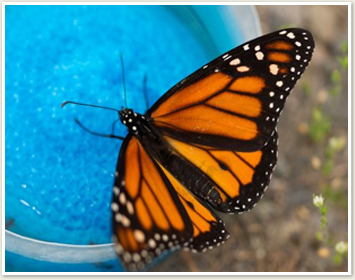 Exciting opportunities are available at Cornell for undergraduates interested in study and research in almost any aspect of the biological sciences. Cornell’s program in the Biological Sciences is composed of faculty members from the College of Agriculture and Life Sciences, College of Arts and Sciences, College of Human Ecology and the College of Veterinary Medicine. The size of the program and the diversity of the faculty’s teaching and research interests are reflected in more than 380 biology course offerings and in the design and flexibility of the undergraduate curriculum.
Exciting opportunities are available at Cornell for undergraduates interested in study and research in almost any aspect of the biological sciences. Cornell’s program in the Biological Sciences is composed of faculty members from the College of Agriculture and Life Sciences, College of Arts and Sciences, College of Human Ecology and the College of Veterinary Medicine. The size of the program and the diversity of the faculty’s teaching and research interests are reflected in more than 380 biology course offerings and in the design and flexibility of the undergraduate curriculum.
Biological Sciences majors enroll in either the College of Agriculture and Life Sciences or the College of Arts and Sciences. The coursework for the major is identical in both colleges. However, distinct college requirements will result in students taking different overall courses to complete their degrees.
Based on individual goals, students tailor their undergraduate experience in the major by applying to one of the two colleges, enrolling in variations of core major requirements, and selecting one of 14 concentrations in the major. Biological Sciences majors develop an excellent foundation in biology, chemistry, physics, and mathematics and complete advanced courses in genetics and biochemistry before delving into upper-level biology courses to complete their concentration. Over 70% of biology majors participate in research during their undergraduate academic careers at Cornell. Students who wish to graduate with honors must apply to the Honors Program at the end of their junior year, maintain a minimum 3.0 cumulative grade point average, and write a thesis based on original research conducted under the direct guidance of a Cornell faculty member.
The minor in biological sciences has been designed to provide students with a broad background in biology while allowing them significant flexibility to choose courses of interest. Students enrolled in any of Cornell’s seven undergraduate colleges may complete the minor. Students must submit the Application to Certify Completion Form once they complete all courses for the minor or during their last semester of enrollment. The OUB will notify the student’s college Registrar that the minor has been certified and a notation will be made on the student’s transcript.
The departments of Ecology & Evolutionary Biology, Entomology, Microbiology, Molecular Biology and Genetics, Neurobiology & Behavior, the Plant Biology section of SIPS, and Biomedical Sciences participate in the major and minor, as does the Division of Nutritional Sciences. Research and teaching in biology at Cornell is not limited to these departments, however: there are over 300 biology faculty on the Ithaca campus alone, with more at Weill Cornell Medicine.
Faculty members in biology are actively engaged in research at the frontiers of the subjects they are teaching, creating intellectual excitement and vitality that give students a genuine feeling of participation in scholarly undertakings. In the classroom, undergraduates hear about important new discoveries, and they are also encouraged to be directly involved in this discovery by pursuing an independent research project. Cornell undergraduates are exposed to a broad diversity of biological problems and challenged to use a variety of investigative approaches to develop solutions.